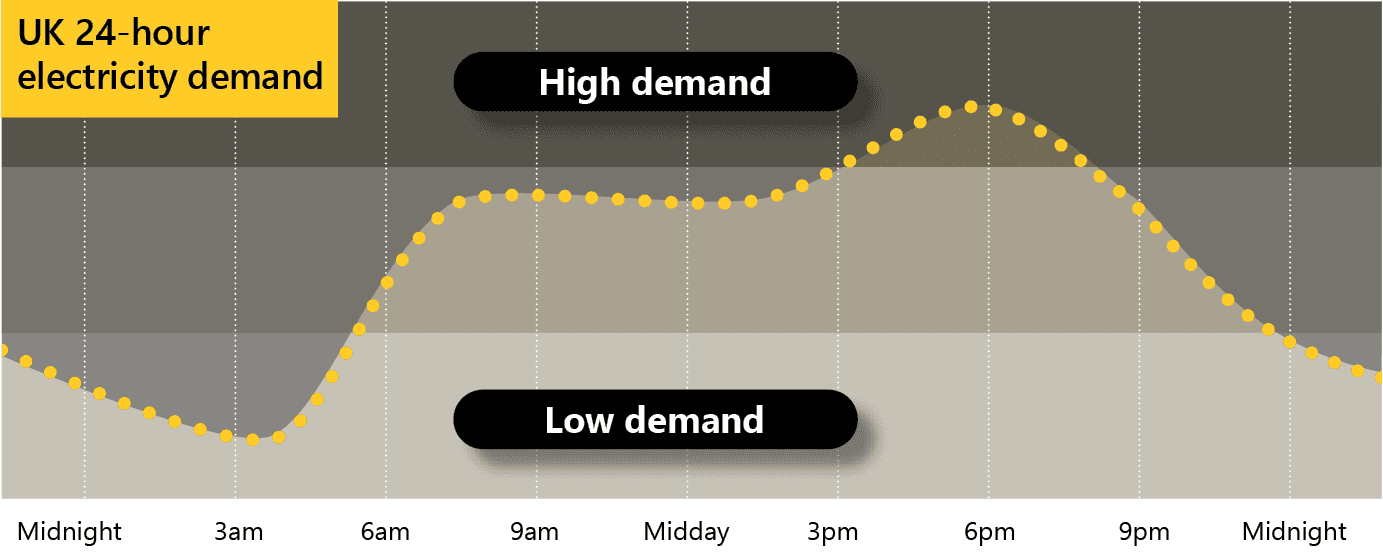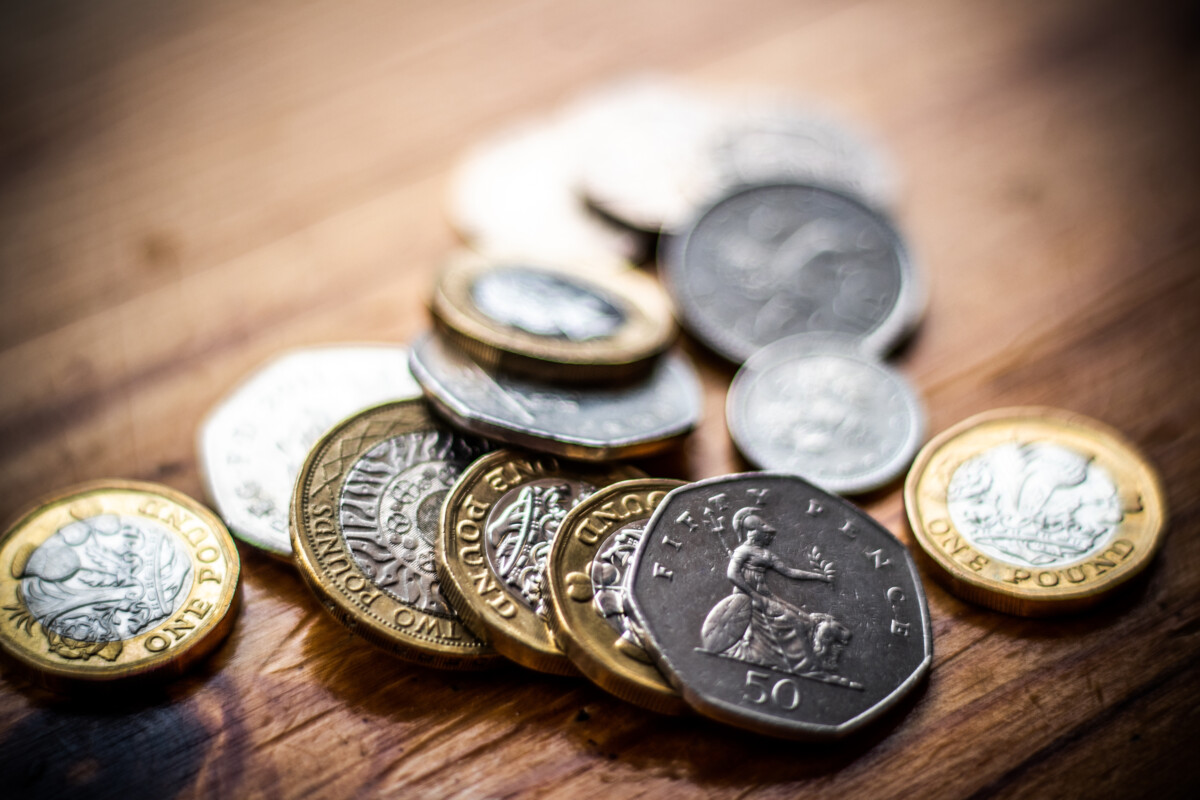Getting smarter with energy
The UK’s energy system is changing.
Back in 2010, almost all of our electricity was generated in power stations by coal, gas or nuclear fuel. Now, depending on the weather, it can be up to 50% of our energy generated by renewable solar and wind.
This is great for reducing carbon emissions – essential for tackling climate change. But solar and wind farms are located all around the UK and sometimes too much electricity is being generated in one place, when the demand for it is somewhere else.
So that we can make the most of the renewable energy we generate we need to become more aware of when we use electricity to help balance the demand for energy throughout the day.
The highest demand for electricity is 4-8pm each day, when the majority of UK households are home from school and work, and cooking, watching TV etc. This is called ‘peak time’.

To meet this demand gas-fired power stations are started up. This is expensive and high in carbon emissions. If households can shift some of their home activities out of peak time – for example running washing machines at midday – this will help to cut fuel bills and greenhouse gas emissions.
To reduce peak demand, the National Grid created the Demand Flexibility Service
The DFS rewards people for changing the times when they use the most electricity. Find out how much you could earn by joining in …
More electricity, less fossil fuels
In the years to come, more of our household activities will use electricity. This is because we’ll move away from using fossil fuels for heating and transport, for example with heat pumps, electric cars and ebikes.
This makes balancing the demand and supply of electricity even more crucial. It means we need to shift our electricity use in time to make use of the cheapest, greenest available energy.
Smart energy use
We’re already experts in shifting our electricity use to reduce our costs. We might wait for a sunny day to do our laundry, avoid using a tumble drier, or batch cook food to avoid using our oven every evening. And some households, usually those with night storage heaters, are on Economy 7, a tariff which has a cheap off-peak rate for electricity at night and a higher standard day-rate.
Smart meters can help us get better at managing our energy use more efficiently because they provide up to date information about a home’s consumption of gas and electricity.. They monitor the household’s energy use and send this information to the energy supplier and to an in-home display or phone app. This enables you to become more knowledgeable about your energy use so you can take advantage of lower electricity rates.
If you are on a time-of-use tariff – like Economy 7 – it will show when the cost of the energy changes.. and you may decide to put your washing machine on first thing in the morning when it is cheaper.
Smart meters automatically send accurate meter readings to energy suppliers enabling them to bill you for exactly how much energy you have used.
This data also helps the energy industry to predict energy demand for the UK and work towards preventing future power cuts by making sure that electricity demand doesn’t exceed supply.. Overall, shifting when electricity is used will help balance energy need across the UK and allow more renewable energy to be used.
Explore your smart energy options
Use our free Energy Choices Tool to find what works for you and your home.
Smart products and services
Smart products and services help you to automate when and how much energy you use. The simplest types are things that have been around for a long time, like programable heating controls and mechanical timer plugs.
But now a growing number of devices can be controlled remotely via a smart phone or by voice activation (Alexa, Siri). And now a home’s smart devices can be integrated via platforms that use smart meter data to make sure you’re using the cheapest energy available.
Many homes now produce their own electricity, usually using solar panels. Power can be fed into the grid or stored in a household battery storage systems so that free electricity generated by solar panels during the day can be used by the household at night.
With time-of-use tariffs, any household with a battery system or even an electric car battery could automatically draw cheap electricity from the grid when renewable generation was high or demand low. Batteries which provide this ‘shifting’ service help to balance the electricity grid, reduce the network costs for all consumers and reduce household energy bills.
Who will benefit from smart appliances?
Everyone can benefit but it may require a bit of thought, planning and effort.
Attempting to do your normal activities at a different time of day may be difficult for some For example, households with young children might need to cook meals at peak times and not everyone will be able to shift the time they use their washing machine. Others may need support to learn how to use smart heating controls or apps.
Some smart appliances may be costly to buy. However, the right smart products and services could help you to achieve real improvements in your levels of comfort and lower your bills.
Whether the changes you make are large or small the rewards can be positive but it’s important to do what’s right for you and what suits your lifestyle.
Explore your smart energy options
Use our free Energy Choices Tool to find what works for you and your home.
Prefer to talk through your options? Call one of our energy advisors on 0800 082 2234.




